AESA PROGRAMMES
- Building R&D Infrastructure
- Developing Excellence in Leadership, Training and Science in Africa (DELTAS Africa)
- Human Heredity and Health in Africa (H3Africa)
- Africa’s Scientific Priorities (ASP)
- Innovation & Entrepreneurship
- Grand Challenges Africa
- Grand Challenges Innovation Network
- Rising Research Leaders/Post-Docs
- AESA RISE Postdoctoral Fellowship Programme
- African Postdoctoral Training Initiative (APTI)
- Climate Impact Research Capacity and Leadership Enhancement (CIRCLE)
- Climate Research for Development (CR4D)
- Future Leaders – African Independent Research (FLAIR)
- Critical Gaps In Science
- Clinical Trials Community (CTC)
- Community & Public Engagement
- Mobility Schemes: Africa-India Mobility Fund
- Mobility Schemes: Science and Language Mobility Scheme Africa
- Research Management Programme in Africa (ReMPro Africa)
- Science Communication/Africa Science Desk (ASD)
- Financial Governance: Global Grant Community (GGC)
- AAS Open Research
- CARI Programmes
- Evidence Leaders Africa (ELA)
All Affiliates
AAS Fellows and Affiliates are distinguished researchers who represent the Continent’s talent and promising men and women from across the globe
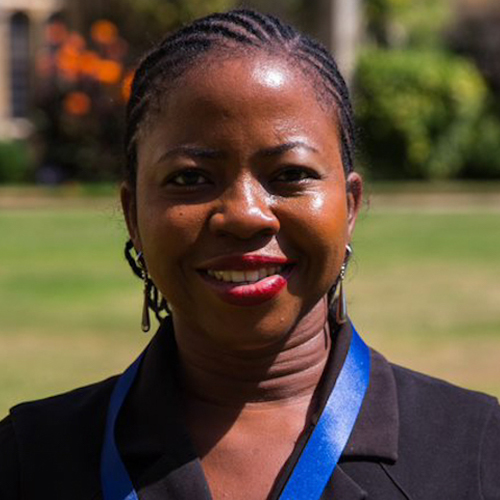
Biosciences
Nigeria
Cohort 1
|
Nwaichi is a Lecturer at the University of Port Harcourt Nigeria with vast work experience in diverse industries including Dangote Group, Coca Cola, and Shell Petroleum Development Company. She is an environmental biochemist with an interest in environmental assessments, monitoring and remediation and most recently is focused on finding sustainable and safe clean up strategies for remediation of petroleum impacted environments, findings which are well consumed. Her wide affiliations and awards/ grants/ fellowships have brought distinction in her scholarship in the areas of research, visibility and social responsibility to many of her University’s host communities. Dr Nwaichi’s selfless and distinctive way of improving the lot of students has earned her successive awards from student bodies beyond her department. She has devoted her time to engaging host communities and ‘polluters’ for a more synergistic and sustainable success in the area of recovery of petroleum impacted environment, in spite of attendant security challenges in the zone. Awards and recognitions to her credit include the prestigious Commonwealth Fellowship, the 2015 University of Port Harcourt Distinguished Merit Award for diligent and meritorious service to the University, UNESCO L’Oreal International Fellowships FWIS, among others. Dr Nwaichi has published widely and has made several paper presentations at both local and international conferences, symposia and meetings. |
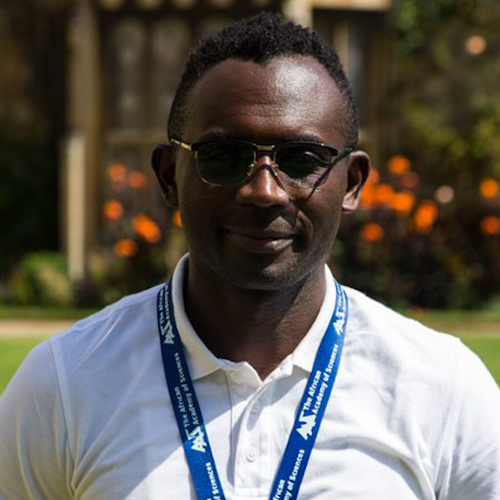
Medical & Health Sciences
Kenya
Cohort 1
Dr Fredros Okumu is Director of Science at Ifakara Health Institute in Tanzania, and an Associate Professor at University of the Witwatersrand. He is a mosquito biologist and public health expert working on new ways to improve control and prevention of vector-borne diseases. He is passionate about improving ecosystems for young researchers in Africa and liberation of scientific knowledge. He tweets https://twitter.com/Fredros_Inc , Occasionally blogs here, and has his publications archived here & here"
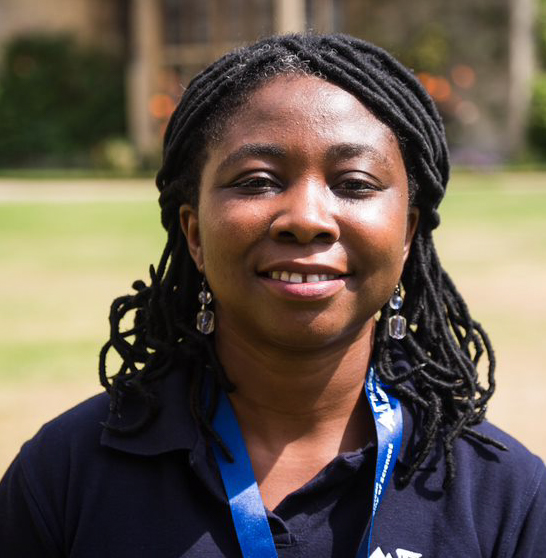
Chemical Sciences
Ghana
Cohort 1
|
Nkansah’s research interests span a wide range of fields including finding solutions to environmental problems associated with levels and fate of toxic substances like heavy/trace metals, persistent organic pollutants (POPs), polycyclic aromatic hydrocarbons (PAHs), and petrochemicals in food, water, soil, rocks, sediments and the interaction of these pollutants with each other in the environment. Dr Nkansah has nearly a decade of university teaching and research experience. She has published widely in the area of heavy metals and PAHs in the environment. She collaborates with Scientists in Bern -Switzerland and Bergen-Norway. She is a two time beneficiary of SPIRE a grant instituted by the University of Bergen for collaborators in the South. She serves as a thesis assessor for the School of Graduate Studies at the Kwame Nkrumah University of Science and Technology (KNUST) and assessor for staff promotion of the Methodist University College of Ghana among other bodies. She is also a reviewer for academic journals including the Journal of Science and Technology, KNUST and the Journal of Hazardous Materials. She is a Member of the Council of Convocation of KNUST and the Director of ‘The Gaudete Institute’, a charity organisation. Dr Nkansah teaches practical chemistry, nuclear/radiochemistry, chemistry and society, and petroleum chemistry (a course she introduced). |
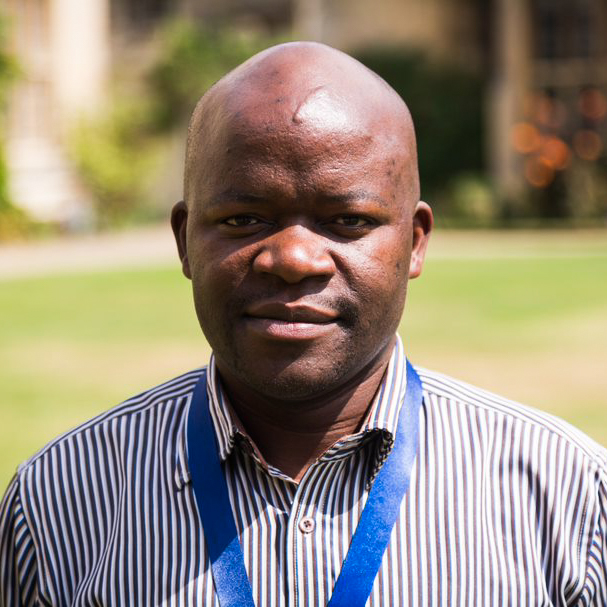
Chemical Sciences
Kenya
Cohort 1
|
Andala is a Senior Lecturer for materials chemistry at the Multimedia University’s Department of Chemistry in Kenya. He has a PhD in nanotechnology/materials chemistry from State University of New York at Binghamton, USA. He undertook a postdoctoral fellowship at Pennsylvania State University in 2011. Dr Andala is involved in policy development and capacity building in the area of nanotechnology. He chaired the Committee on establishment of nanotechnology in Kenya and is a stakeholder in the ‘Development of National Research Agenda: Role of Science, Research and Innovation in stimulating Economic growth (i.e. Vision 2030)’ spearheaded by National Commission for Science Innovation and Technology. He is the Editor in Chief for the Kenya Chemical Society. He was also involved in setting up the Pan-African Centre of Excellence in Nanomedicine. He is involved in promotion of Chemical Safety and Security in Kenya and the drafting of the Global Chemists’ Code of Ethics (GCCE) spearheaded by American Chemical Society in partnership with OPCW. He is currently supervising 8 PhD students and several masters students and has 14 publications in peer reviewed journals and two books. He has organised, given talks and attended several local and international conferences on nanotechnology and materials science. His research interests include the development of metal nanoparticles, metal and metal oxide nanofibers and nanotubes. He is currently a member of Kenya Academy of Sciences; American Chemical Society, Kenya Chemical Society, Royal Society of Chemistry, African Materials Research Society, ANSOLE and Materials Research Society and an IUPAC-Affiliate. |
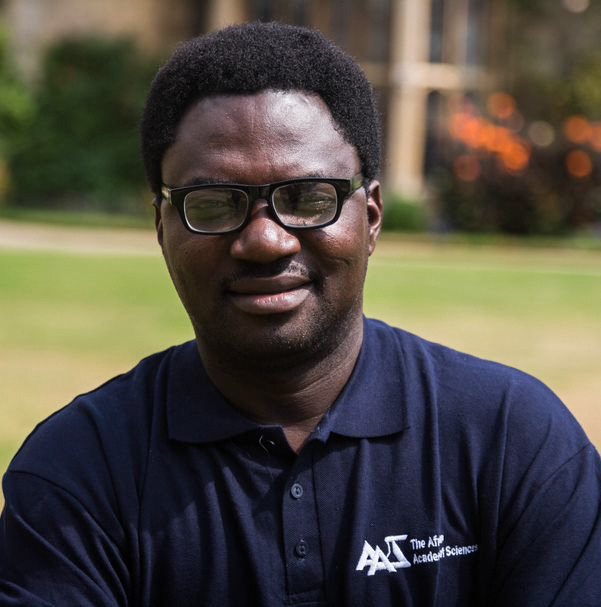
Chemical Sciences
Nigeria
Cohort 1
|
Adewuyi has a PhD in industrial chemistry from the University of Ibadan in Nigeria. His research focuses on the industrial applications of underutilised seeds and seed oils in tropical Africa which cuts across synthesis of surfactants, biofuel and major oleochemicals and their use in waste water treatment, environment, medicine and food. |
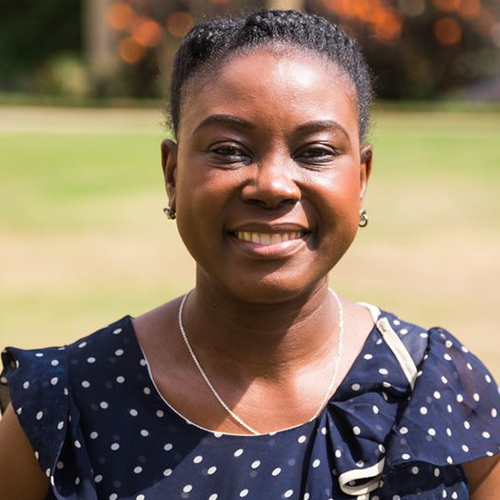
Chemical Sciences
South Africa
Cohort 1
|
Makhubela has a PhD from the University of Cape Town in South Africa with her research focusing into the design, synthesis and characterisation of novel platinum group metal based organometallic complexes supported on macromolecules and biopolymers for applications in catalysis, with an emphasis on clean catalytic transformations in aqueous media, metal catalyst recycling and sustainability. She is an NRF Research Career Advancement Fellow, a Japan Society for the Promotion of Science (JSPS) Hope Fellow and Young Affiliate Member of The World Academy of Sciences (TWAS). |
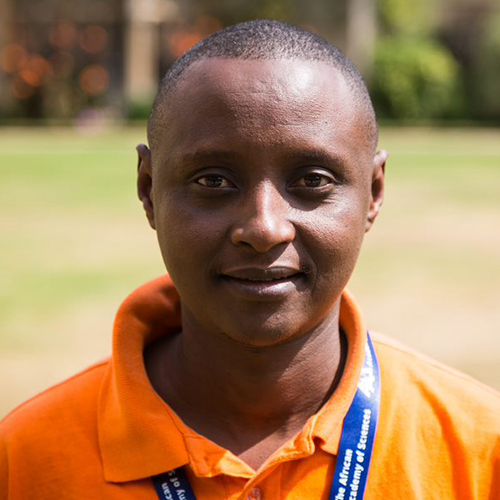
Engineering Technology & Applied Sciences
Tanzania
Cohort 1
|
Hilonga is a Senior Lecturer at the Nelson Mandela African Institution of Science and Technology in Tanzania. He obtained his Bachelor of Science degree (BSc.Ed, 2004) and Master (M.Sc. Chem, 2007) from the University of Dar es Salaam. Hilonga obtained his PhD from the Hanyang University (2010) and continued with post-doctorate studies for two more years at the same university until 2012. Hilonga obtained a Master in Public Health (MPH) from Sahmyook University, Korea in 2012.
|
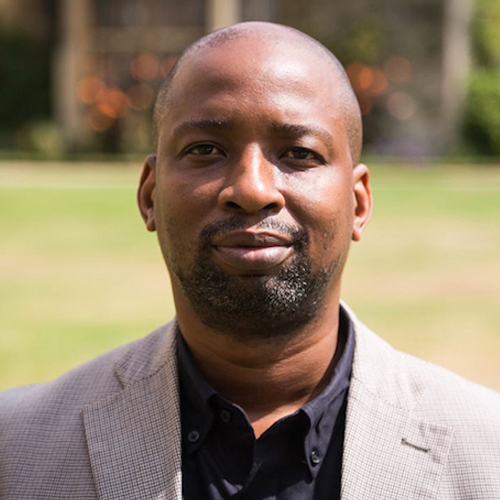
Engineering Technology & Applied Sciences
Tanzania
Cohort 1
|
Kaijage received his Doctor of Engineering (Electronics and Information Eng.) and Master in Engineering (Electrical and Electronics Eng.) degrees from University of the Ryukyus, Okinawa, Japan, in March 2011 and March 2008, respectively. Since February 2014, he has been working with Nelson Mandela African Institution of Science and Technology (NM-AIST) in Tanzania as a Lecturer and Head at the department of Communication Science and Engineering (CoSE).
|
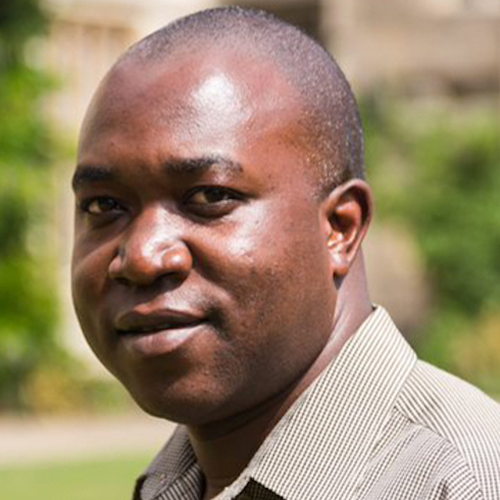
Geological, Environmental, Earth & Space Sciences
Zimbabwe
Cohort 1
|
Gandiwa holds a BSc (Hons) in Environmental Science and Health from Zimbabwe’s University of Science and Technology (2004), an MSc in tropical resource ecology from the University of Zimbabwe (2007), and a PhD in wildlife conservation and management from the Wageningen University in the Netherlands (2013). His career has focused on wildlife ecology and conservation. He started his career in wildlife conservation in 2004 when he joined the Zimbabwe Parks and Wildlife Management Authority as an ecologist based in Gonarezhou National Park. He worked as an ecologist for almost 9 years before joining Chinhoyi University of Technology, Zimbabwe in 2013 as an Associate Professor in the then Department of Wildlife and Safari Management. In 2014, he was appointed the inaugural Executive Dean for the School of Wildlife, Ecology and Conservation where he currently provides academic leadership in terms of research, teaching and engagement with industry/community on wildlife related issues. In September 2015, he was appointed as a Full Professor of Wildlife Ecology and Conservation. To date, he has published 72 scientific articles as peer-reviewed journal articles, two book chapters, and several conference proceedings and technical reports, contributed knowledge which has been vital to sustainable conservation and is involved in community outreach through education related roles. |
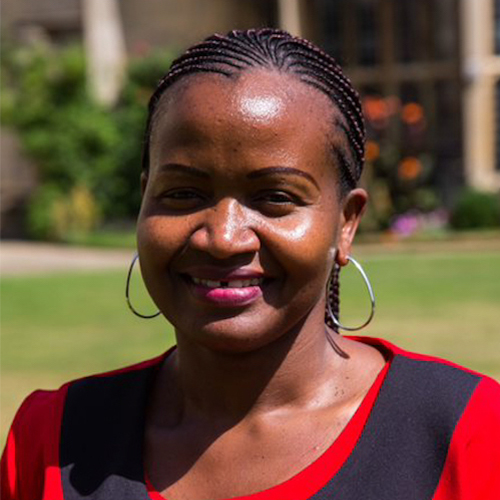
Agricultural & Nutritional Sciences
Kenya
Cohort 1
|
Murungi is a crop protection expert in the Department of Horticulture at the Jomo Kenyatta University of Agriculture and Technology (JKUAT). Her role in the department includes, but is not limited to, capacity building and research. Dr Murungi, who holds a BSc, MSc and PhD in Horticulture from JKUA, has specialised on the ecological interactions between plants and pests found below- and above ground. She recently completed a postdoctoral research fellowship at the International Centre of Insect Physiology and Ecology (icipe) where she was evaluating allelochemicals involved in the interactions between high value vegetables and root-knot nematodes. Dr Murungi is a principal investigator and a collaborator in various vegetable integrated pest management projects both locally and internationally. She has published several scientific articles in peer-reviewed journals and is supervising a number of postgraduate students working on various crop pests. Recently, she was awarded the first prize for demonstrating progressive laboratory research of the 2013-2015 fellows when she completed her two-year fellowship with the African Women in Agricultural Research and Development (AWARD). Dr Murungi belongs to six professional associations one of them being the Horticultural Association of Kenya where she is serving in the executive board as the secretary. She is working closely with various stakeholders in order to apply scientific knowledge to develop simple and affordable tools to solve pest problems at the smallholder farmer level and improve food security. |
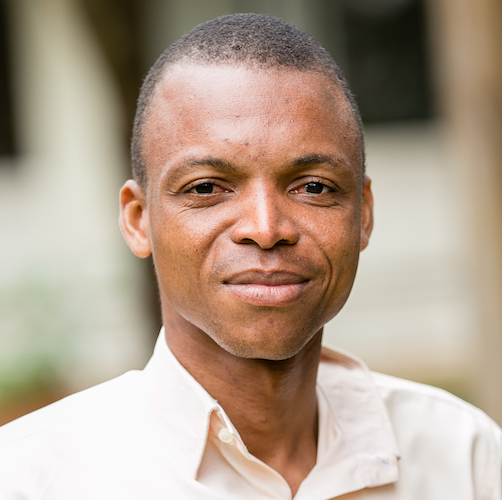
Biosciences
Benin
Cohort 1
|
Azihou is a lecturer and researcher at University of Abomey-Calavi (Benin) and a guest lecturer at the University of Parakou (Benin). He is member of the Laboratory of Applied Ecology and external collaborator of the Laboratory of Biomathematics and Forest Estimation. From 2010 to 2013, he was a member of the Interim Steering Committee of the Global Youth Biodiversity Network. His current research interests include plant strategies, community assembly, dynamics of forest and savanna ecosystems and conservation of natural resources. Some of his fellowships and grants include the National Fund for Scientific Research and Technologic Innovation (FNRSIT, Benin) Research Grant (2015); International Foundation of Sciences (IFS) Collaborative research grant (2015); National Office of Wood (ONAB, Bénin) Research grant (2013, 2015); Rufford Small Grant (RSG) for Nature Conservation (2012); IUFRO-SPDC Sponsorship, International Union of Forest Research Organizations (2012); Research Grant for Excellence, West African Economic and Monetary Union (2011); Student Travel Award, International Association for Landscape Ecology (2011); Bursary, Conservation Science Group, University of Cambridge, (2010); Beninese Government Scholarship (2004, 2005, 2006, 2007, 2008). He participated in 20 conferences and workshops in Japan, China, United Kingdom, Germany, France, Belgium, USA, Kenya, Tanzania, Togo, Niger and Benin. Dr Azihou has published 13 papers in peer-reviewed journals, three dissertations and one book chapter. |
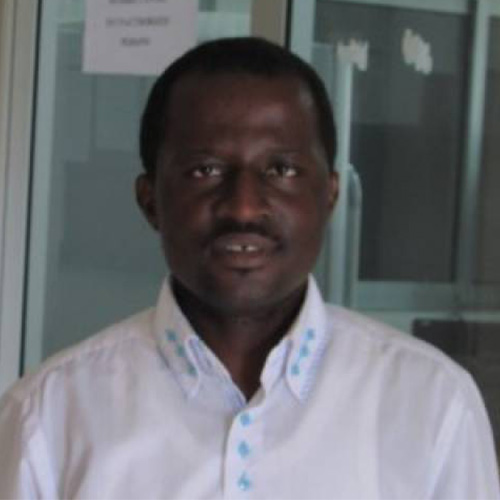
Biosciences
Cameroon
Cohort 1
|
Obejum is an early career researcher and Lecturer based at the University of Buea in Buea, Cameroon. With a PhD in Biochemistry (University of Buea, Cameroon) and Genetic Manipulation (University of Nottingham, UK), he has been studying malaria epidemiology and immunology in pregnant women and children since 2003. His research interests include infectious disease (especially malaria) epidemiology, pathogenesis and immunology. He is currently focusing on population genetics and drug resistance testing of Plasmodium falciparum across different micro-ecological zones of Cameroon, aiming to produce information on the genetic structure of these parasite populations critical to the detection of signatures of natural selection in the parasite genome. Dr Obejum was a Malaria Genomic Epidemiology (MalariaGEN) Data Fellow for Cameroon and is a member of the Plasmodium Diversity Network Africa (PDNA). |
Pagination

Elected: